

— Blogs —
—Products—
 Consumer hotline +8618073152920
Consumer hotline +8618073152920 WhatsApp:+8615367865107
Address:Room 102, District D, Houhu Industrial Park, Yuelu District, Changsha City, Hunan Province, China
Product knowledge
Time:2024-02-29 20:56:33 Popularity:1815
The application of IoT (Internet of Things) in agriculture is achieved by deploying a variety of sensors that collect critical agricultural data to help farmers manage crops, soil and climatic conditions more efficiently.IoT agricultural sensors help farmers monitor and optimise the agricultural production process to improve crop yield and quality. Here are some common IoT agriculture sensors:
1. temperature sensors:
- Product Description:Temperature sensors are used to monitor the temperature of the environment in which crops are grown. They can be soil temperature sensors, air temperature sensors or temperature sensors inside the plant.
- Value : Crops grow best at the right temperature and temperature sensors can help farmers optimise crop growing conditions by avoiding overheating or overcooling.
2. humidity sensor:
- Product Description: Humidity sensors are used to monitor soil moisture, air humidity and crop moisture. This data is critical for crop growth.
- Value: By monitoring humidity in real time, farmers can irrigate accurately to avoid over- or under-watering, conserve water and maintain soil health.
3. Light Sensor:
- Product Description: Light sensors monitor the intensity of sunlight, which is important for greenhouse growing and understanding plant photosynthesis.
- Value: Insufficient light may affect plant growth and yield. By monitoring light intensity, the crop growing environment can be adjusted, e.g. by using supplementary light.
4. Soil sensor:
- Product Description: Soil sensor can measure soil parameters such as pH, conductivity, organic matter content, nitrate nitrogen, ammonia nitrogen and so on.
- Value: This data is essential for fertiliser planning, soil improvement and maximising crop yields.
5. Nutrient Sensors for Nitrogen, Phosphorus, Potassium NPK and other nutrients: Used to monitor the levels of different nutrients in the soil and guide fertiliser planning.
6. PH Sensor:
Used to measure the PH value of the soil to help farmers understand soil pH and adjust fertiliser programmes.
7. Agricultural water level sensor:
used to monitor the groundwater level or irrigation water level to ensure that the soil moisture is in the appropriate range.
8. weather station:
- Product Description: Weather station includes sensors for temperature, humidity, wind speed, precipitation and many other weather parameters.
- Value: By collecting weather forecasts and climate data, it can help farmers prevent natural disasters such as frost, drought or floods.
9. Pest and disease monitoring sensors:
- Product Description: These sensors monitor crop pests and diseases through image recognition, acoustic wave detection and other technologies.
- Value: Early detection of pests and diseases can lead to timely measures to reduce losses and avoid large-scale outbreaks.
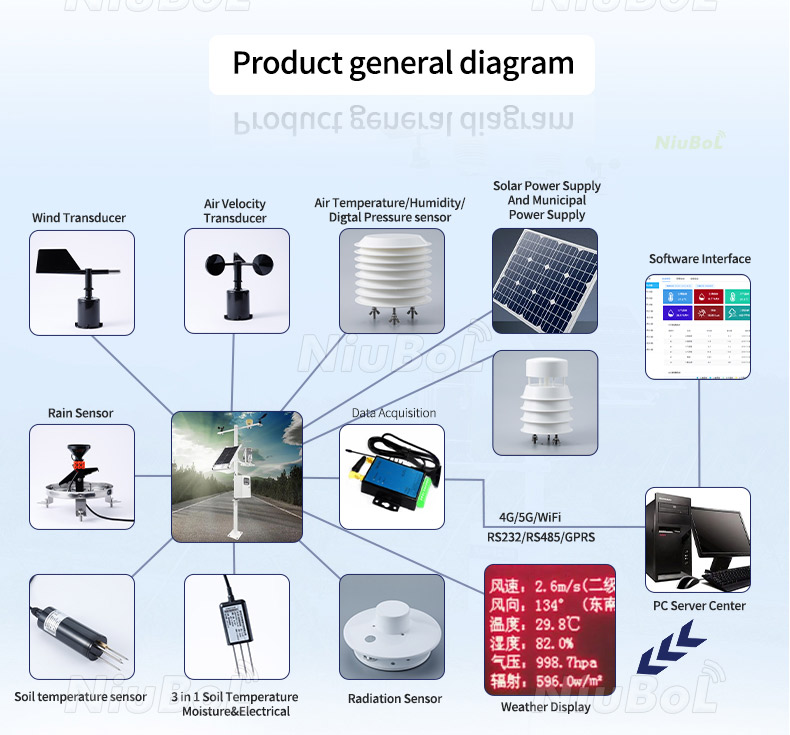
10. Intelligent irrigation system:
- Product Description: Smart irrigation systems based on sensor data can automatically adjust irrigation time and amount.
- Value: Such a system can significantly improve the efficiency of water use and reduce waste, while ensuring that crops receive the right amount of water.
11. Crop growth monitoring sensors:
These include sensors that measure crop growth, such as chlorophyll content, plant height, and fruit growth sensors, to help farmers monitor crop growth.
These sensors enable real-time monitoring and remote access to data, providing farmers with accurate information on agricultural management, helping them to make better decisions and improve agricultural productivity and sustainability.
IoT agricultural sensors provide farmers with the ability to monitor and manage their farmland in real time by collecting this data. This data can be used to optimise crop cropping patterns, improve agricultural management practices, increase crop yields and quality, and contribute to the development of sustainable agriculture. The application and diffusion of these technologies is in line with the direction of green and smart agriculture, which helps to modernise agriculture, increase farmers' income and ensure food security.
Related recommendations
Sensors & Weather Stations Catalog
Agriculture Sensors and Weather Stations Catalog-NiuBoL.pdf
Weather Stations Catalog-NiuBoL.pdf
Related products
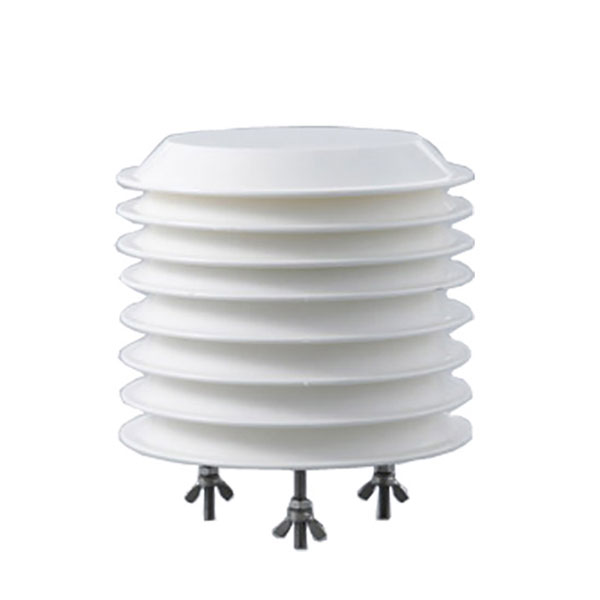 Combined air temperature and relative humidity sensor
Combined air temperature and relative humidity sensor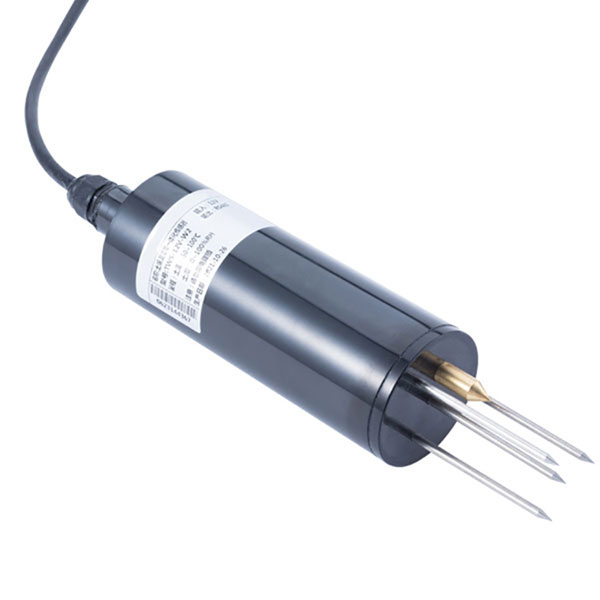 Soil Moisture Temperature sensor for irrigation
Soil Moisture Temperature sensor for irrigation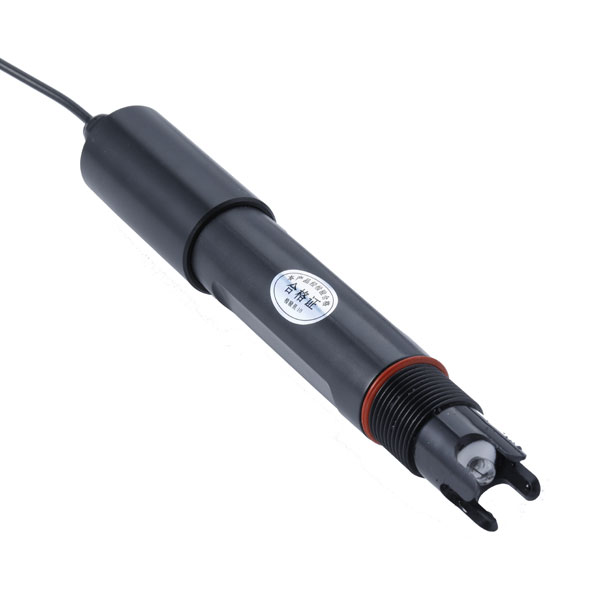 Soil pH sensor RS485 soil Testing instrument soil ph meter for agriculture
Soil pH sensor RS485 soil Testing instrument soil ph meter for agriculture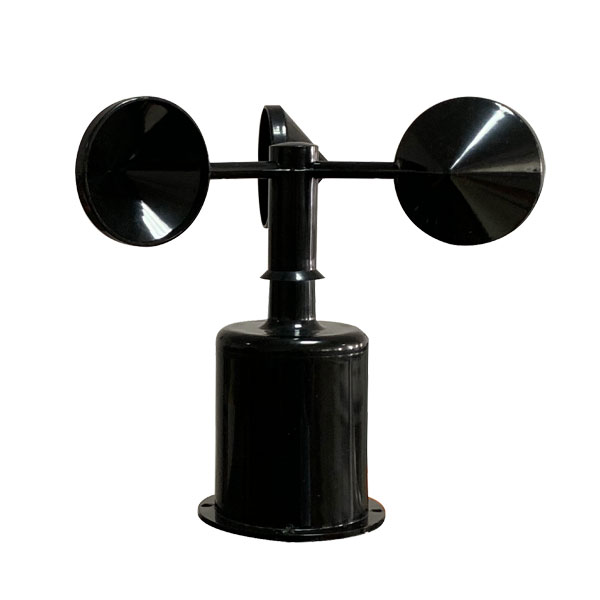 Wind Speed sensor Output Modbus/RS485/Analog/0-5V/4-20mA
Wind Speed sensor Output Modbus/RS485/Analog/0-5V/4-20mA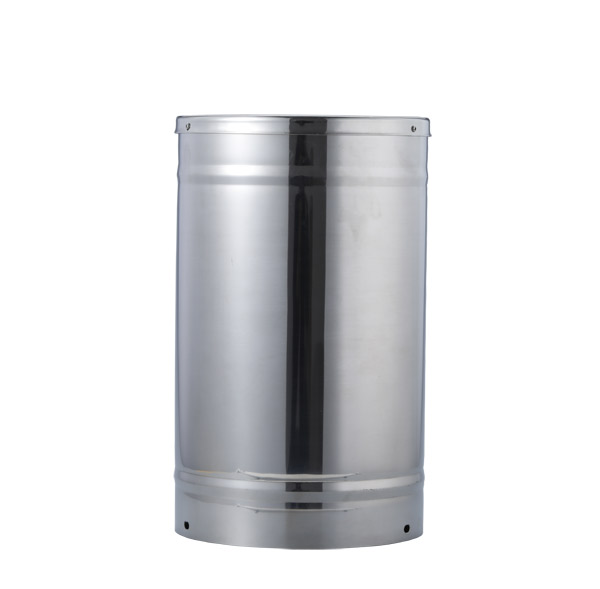 Tipping bucket rain gauge for weather monitoring auto rainfall sensor RS485/Outdoor/stainless steel
Tipping bucket rain gauge for weather monitoring auto rainfall sensor RS485/Outdoor/stainless steel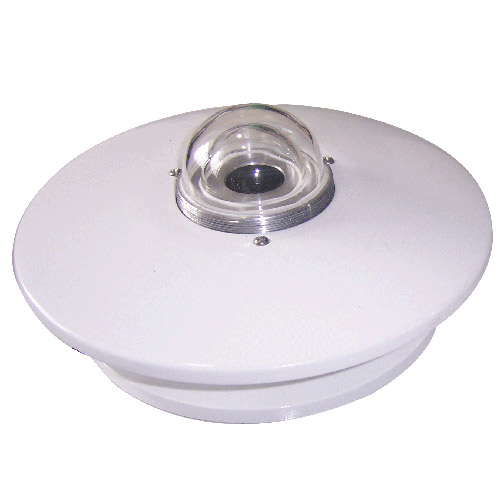 Pyranometer Solar Radiation Sensor 4-20mA/RS485
Pyranometer Solar Radiation Sensor 4-20mA/RS485
Screenshot, WhatsApp to identify the QR code
WhatsApp number:+8615367865107
(Click on WhatsApp to copy and add friends)
